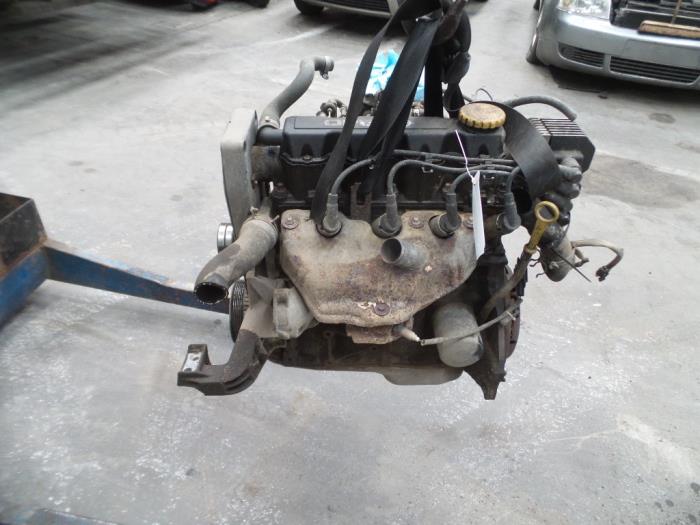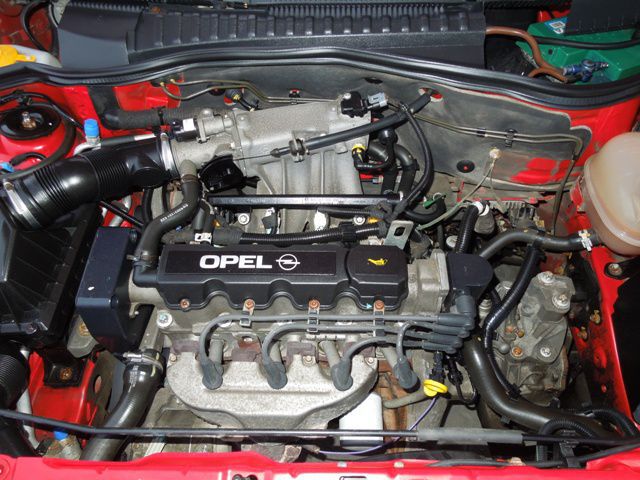Discover Competitive Opel Corsa 1.4 Engine Price Options at Vehicle Components Industry
Discover Competitive Opel Corsa 1.4 Engine Price Options at Vehicle Components Industry
Blog Article
Smart Buyer's Checklist: Secret Includes to Assess in Engines Before Making an Acquisition
When considering buying an engine, there are a number of vital attributes that a discerning purchaser need to evaluate to ensure they are making a well-informed decision - Opel Corsa 1.4 Engine Price. From the type of engine to its efficiency metrics, gas maintenance, resilience, and efficiency prices, each element plays a crucial function in figuring out the engine's viability for the intended purpose. By thoroughly analyzing these factors, buyers can make a purchase that not only meets their current demands yet likewise verifies to be a smart long-lasting investment
Engine Type Evaluation

For applications needing high power outcome, such as durable commercial equipment or big cars, diesel engines are frequently liked because of their effectiveness and torque capabilities. On the other hand, fuel engines are generally chosen for smaller sized tools, automobiles, and power tools where lighter weight and higher RPM efficiency are useful.
Furthermore, the atmosphere in which the engine will certainly operate must be taken right into account. Aspects such as altitude, air, and temperature quality can influence the engine's efficiency and longevity. Picking an engine kind that is ideal for the details operating problems will certainly aid guarantee optimal efficiency and durability.
Efficiency Metrics Assessment
Reviewing performance metrics is crucial in establishing the effectiveness and performance of an engine for its designated application. One key metric to take into consideration is the power outcome, typically determined in horsepower (HP) or kilowatts (kW), which suggests the engine's capacity to carry out work. Torque is an additional important statistics as it represents the rotational force created by the engine, influencing its capacity to conquer resistance and increase. Fuel effectiveness is a crucial efficiency statistics, highlighting how successfully the engine converts fuel into useful energy. Furthermore, checking out emissions levels, such as co2 (CARBON DIOXIDE) and nitrogen oxides (NOx), is essential for making sure ecological compliance and reducing the engine's environmental influence. Thermal effectiveness, a procedure of how well the engine converts warm from fuel burning right into mechanical job, is likewise basic in assessing general performance. By thoroughly examining these efficiency metrics, customers can make enlightened choices when choosing an engine that lines up with their details needs and purposes.
Gas Effectiveness Exam
Analyzing gas effectiveness is a critical aspect in establishing the functional cost-effectiveness and environmental impact of an engine. Gas effectiveness refers to the amount of power an engine can draw out from a certain quantity of gas. It directly affects the overall business expenses of the engine, making it an essential factor to consider for purchasers looking to maximize their long-lasting costs.
When assessing gas effectiveness, it is vital to consider metrics such as miles per gallon (MPG) or litres per 100 kilometers (L/100km) depending upon the region. These metrics give a clear indicator of how much a vehicle can travel on a system of gas, enabling buyers to approximate gas expenses accurately. In addition, technologies like crossbreed systems, turbocharging, and direct gas shot can substantially impact gas efficiency by enhancing burning efficiency and reducing power losses.
Ultimately, choosing an engine with high gas effectiveness not just lowers functional costs however additionally decreases carbon exhausts, making it an environmentally mindful selection. By focusing on gas performance during the purchasing process, buyers can make educated choices that straighten with their economic and environmental goals.
Durability and Dependability Inspect

Thinking about the significant effect of gas effectiveness on functional expenses and ecological sustainability, the next important aspect to evaluate in engine purchase is the durability and dependability of the engine. Durability describes the engine's ability to stand up to wear, deterioration, and tension over an extensive period, making certain a longer life-span. Reliability, on the other hand, relates to the engine's uniformity in performance under various problems without unanticipated break downs or failings.
To analyze the resilience and dependability of an engine, several aspects need factor to consider. First, analyzing the engine's building and construction products and style can provide understanding into its effectiveness and resistance to wear. Furthermore, examining historic information on the engine version's efficiency, upkeep needs, and common issues reported by individuals can help gauge its reliability.
Furthermore, accreditations from trustworthy organizations, warranty offerings, and manufacturer reputation for producing dependable engines are beneficial indications of durability and integrity. Performing comprehensive study, looking for referrals, and evaluating upkeep records can aid in making an informed decision on purchasing an engine More Bonuses recognized for its long life and trustworthy performance.
Cost and Upkeep Factors To Consider
When considering engine purchase decisions, an important aspect to look into check over here is the monetary implications paired with upkeep considerations. The cost of an engine expands beyond the initial acquisition cost. It is important to evaluate variables such as gas efficiency, recurring upkeep expenses, and the availability of extra parts. Choosing a fuel-efficient engine may cause long-lasting cost financial savings in spite of a possibly higher ahead of time cost. In addition, examining the upkeep requirements of various engine models is essential. Some engines may require regular maintenance or specialized treatment, resulting in increased maintenance expenditures with time. Considering the accessibility and cost of extra parts is also critical. Engines with readily obtainable and fairly valued extra parts can substantially decrease upkeep costs and downtime. Prioritizing cost-effectiveness and convenience of upkeep can result in an extra affordable and sustainable engine investment in the lengthy run.
Conclusion
To conclude, it is important for purchasers to thoroughly assess key functions in engines before purchasing. By considering the engine type, efficiency metrics, gas efficiency, resilience, cost, reliability, and maintenance demands, buyers can make an enlightened choice that satisfies their expectations and needs. This comprehensive analysis process guarantees that buyers choose an engine that will certainly offer optimal efficiency and longevity for their planned usage.
From the type of engine to its efficiency metrics, fuel efficiency, upkeep, and see it here sturdiness prices, each element plays a vital duty in identifying the engine's viability for the desired function. Gas effectiveness is a crucial efficiency metric, highlighting exactly how properly the engine converts fuel into functional power. Fuel effectiveness refers to the quantity of power an engine can draw out from a particular quantity of fuel.Taking into consideration the considerable impact of fuel effectiveness on operational expenses and ecological sustainability, the following important facet to evaluate in engine acquisition is the resilience and dependability of the engine. By taking into consideration the engine type, performance metrics, fuel effectiveness, sturdiness, maintenance, dependability, and expense requirements, buyers can make an educated decision that satisfies their assumptions and demands.
Report this page